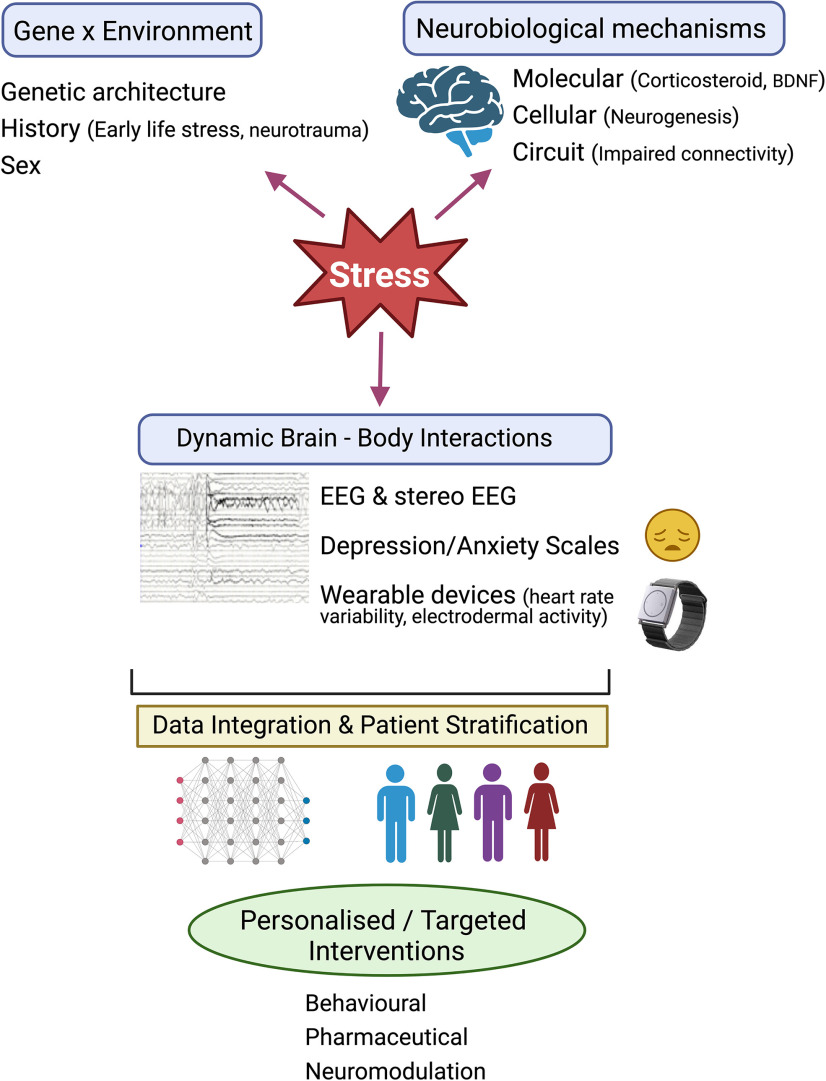Figure 1.
A proposed framework toward personalized and targeted interventions for stress-related epileptogenesis. Stress plays a major role in the pathophysiology of epileptogenesis. Gene x environment interactions including early life stress, neurotrauma underpin this complex relationship between stress and epilepsy leading to impairments in select brain structures and functions. Identifying key neurobiological mechanisms (for example, alterations in neurogenesis, BDNF levels, neural connectivity) that can serve as strong biomarkers together with measurement of brain-body interactions (for example, changes in electrical activity in the brain, electrodermal activity, heart rate variability) could offer a powerful framework to stratify patients with high vulnerability to stress and related psychiatric disorders (depression/anxiety scales). This would require development of new and robust algorithms to integrate data across multiple scales including genetic architecture, neurobiological mechanisms, changes in brain activity and autonomic responses. Use of machine learning and systems neuroscience approaches will guide personalized therapeutic approaches (such as use of behavioral, pharmaceutical, and/or neuromodulatory interventions), to manage stress-related epileptogenesis by refining methods for seizure detection and forecasting and ultimately developing disease-modifying therapies. EEG, electroencephalogram. Created with BioRender.

